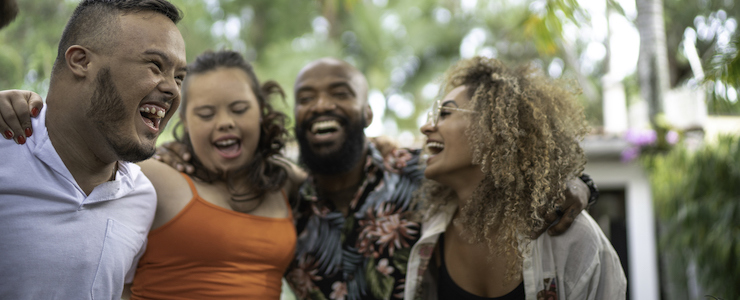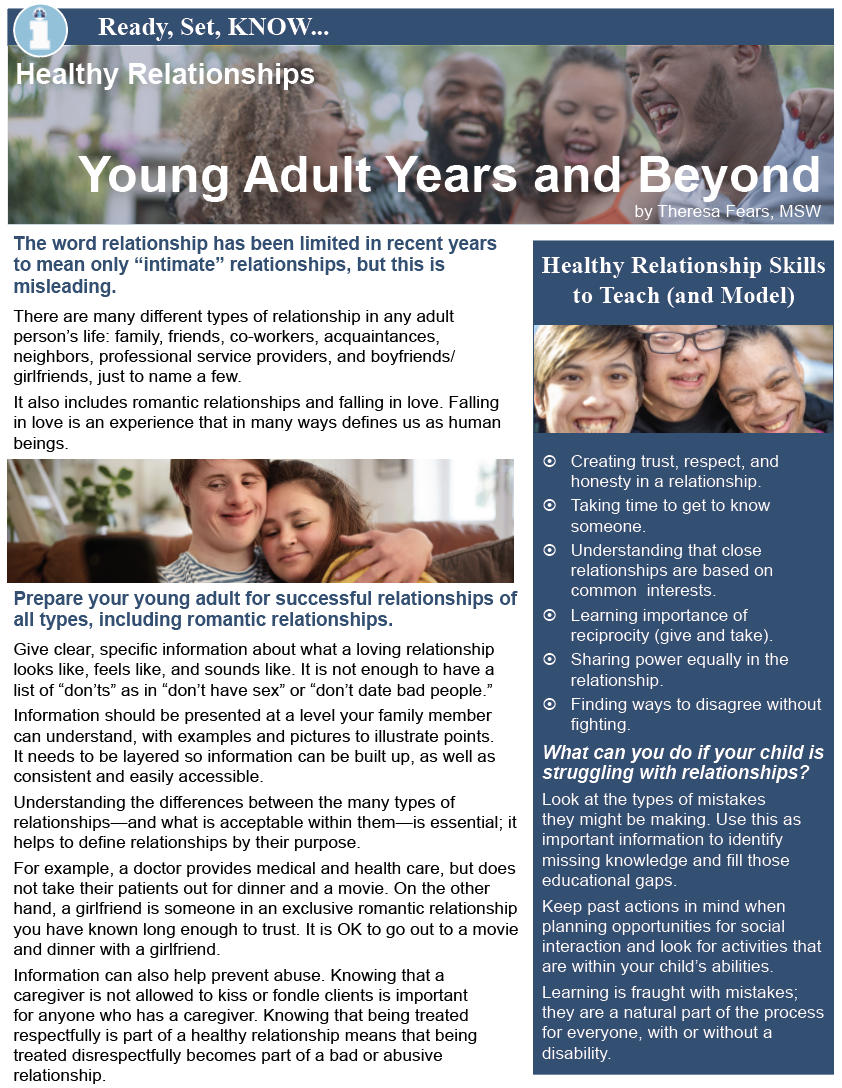by Theresa Fears, MSW
The word relationship has been limited in recent years to mean only “intimate” relationships, but this is misleading.
There are many different types of relationship in any adult person’s life: family, friends, co-workers, acquaintances, neighbors, professional service providers, and boyfriends/girlfriends, just to name a few.
It also includes romantic relationships and falling in love. Falling in love is an experience that in many ways defines us as human beings.
Prepare your young adult for successful relationships of all types, including romantic relationships.
Give clear, specific information about what a loving relationship looks like, feels like, and sounds like. It is not enough to have a list of “don’ts” as in “don’t have sex” or “don’t date bad people.”
Information should be presented at a level your family member can understand, with examples and pictures to illustrate points. It needs to be layered so information can be built up, as well as consistent and easily accessible.
Understanding the differences between the many types of relationships—and what is acceptable within them—is essential; it helps to define relationships by their purpose.
For example, a doctor provides medical and health care, but does not take their patients out for dinner and a movie. On the other hand, a girlfriend is someone in an exclusive romantic relationship you have known long enough to trust. It is OK to go out to a movie and dinner with a girlfriend.
Information can also help prevent abuse. Knowing that a caregiver is not allowed to kiss or fondle clients is important for anyone who has a caregiver. Knowing that being treated respectfully is part of a healthy relationship means that being treated disrespectfully becomes part of a bad or abusive relationship.
Healthy Relationship Skills to Teach (and Model)
- Creating trust, respect, and honesty in a relationship.
- Taking time to get to know someone.
- Understanding that close relationships are based on common interests.
- Learning importance of reciprocity (give and take).
- Sharing power equally in the relationship.
- Finding ways to disagree without fighting.
What can you do if your child is struggling with relationships?
Look at the types of mistakes they might be making. Use this as important information to identify missing knowledge and fill those educational gaps.
Keep past actions in mind when planning opportunities for social interaction and look for activities that are within your child’s abilities.
Learning is fraught with mistakes; they are a natural part of the process for everyone, with or without a disability.
Learn More
Healthy Relationships: Childhood Years
Healthy Relationships: Middle School Years







